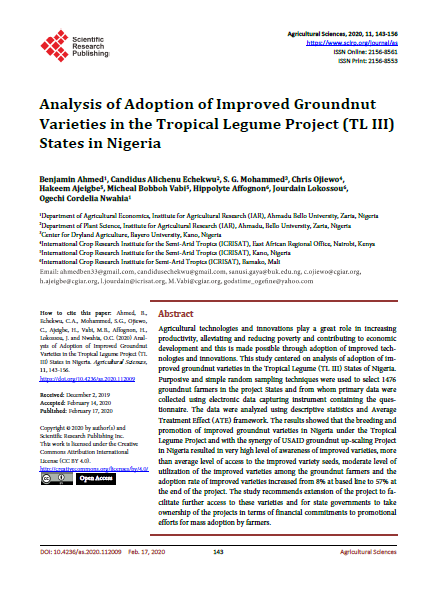Analysis of Adoption of Improved Groundnut Varieties in the Tropical Legume Project (TL III) States in Nigeria
Summary
Agricultural technologies and innovations play a great role in increasing productivity, alleviating and reducing poverty, and contributing to economic development, and this is made possible through adoption of improved technologies and innovations. This study centered on analysis of adoption of improved groundnut varieties in the states of Nigeria. Purposive and simple random sampling techniques were used to select 1,476 groundnut farmers in the project states, from whom primary data were collected using an electronic data capturing instrument containing the questionnaire. The data were analyzed using descriptive statistics and the Average Treatment Effect (ATE) framework. The results showed that the breeding and promotion of improved groundnut varieties in Nigeria under the Tropical Legume Project and with the synergy of the USAID groundnut upscaling project in Nigeria resulted in a very high level of awareness of improved varieties, more than average level of access to the improved variety seeds, a moderate level of utilization of the improved varieties among groundnut farmers, and an increase in the adoption rate of improved varieties from 8% at baseline to 57% by the end of the project. The study recommends extension of the project to facilitate further access to these varieties and for state governments to take ownership of the projects in terms of financial commitments to promotional efforts for mass adoption by farmers.
Open resource Download resource Access resource on external site

